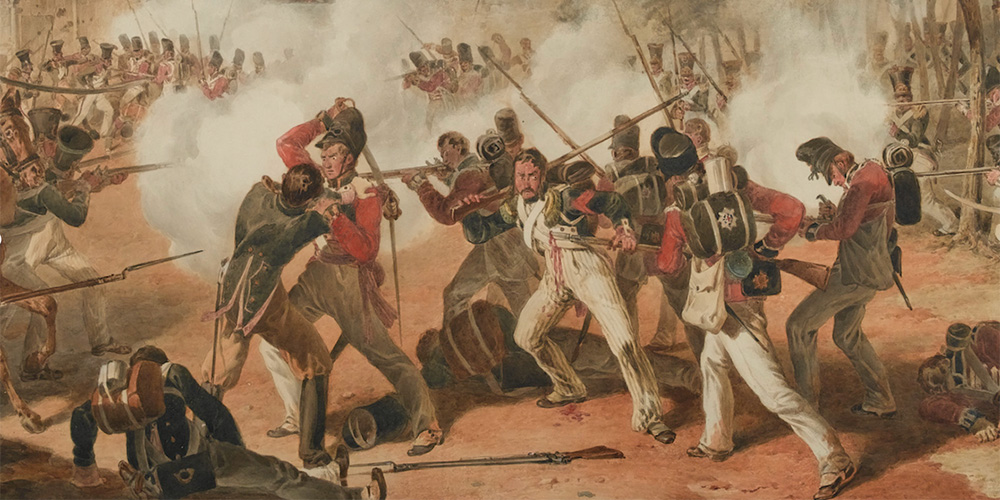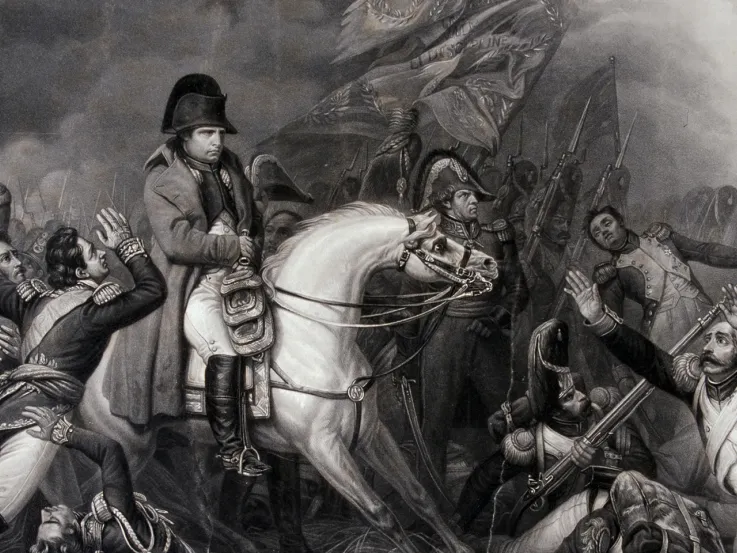Siborne Lecture: Hollywood vs History

The defence of Hougoumont at Waterloo, 1815
Join us for the annual Siborne Lecture, hosted by the Royal United Services Institute (RUSI), to explore the history and culture of the Napoleonic Wars.
The second annual lecture celebrating the intellectual partnership between RUSI and the National Army Museum will explore depictions of the Battle of Waterloo and the wider Napoleonic Wars on the ‘big screen’. Following the release of Ridley Scott’s 'Napoleon' last year, the panel of historians and experts will discuss what it takes to make a film about the Napoleonic era, and why the genre continues to capture the public imagination.
Join Professor Michael Broers, University of Oxford, for a conversation that delves into his personal experience as a historical consultant on the film, alongside broader discussions about representations of Napoleon, the Napoleonic period, and the use of creative licence when telling histories.
RUSI was founded in the aftermath of the Napoleonic Wars and quickly built an impressive museum collection, including the famous model of Waterloo created by William Siborne. Since its establishment in 1960, the National Army Museum has shared RUSI's mission to connect the public with the UK’s military heritage. It now cares for many objects from the original RUSI collection.
There will be an opportunity for questions. The event will be followed by a wine reception.
About the panel
Michael Broers
Michael Broers is Professor of Western European History at the University of Oxford. He is the author of several books about revolutionary and Napoleonic Europe, including a two-volume biography of Napoleon. He was a historical consultant on Ridley Scott’s 2023 film, 'Napoleon'.
Matilda Greig
Dr Matilda Greig is the National Army Museum’s Napoleonic historian. She has previously written about the autobiographies of Napoleon’s soldiers in her book 'Dead Men Telling Tales' (Oxford University Press, 2021) and is currently co-editing a second book on how Napoleon’s memory has developed since his death through theatre, film, art and objects.
Emma Butcher
Dr Emma Butcher is the Senior Project Officer in Military Sciences at the Royal United Services Institute. Emma holds a PhD in English Literature and a Higher Education Fellowship. Her research focuses on the history of children in armed conflict between 1789 and 1970, as well as pre-20th century representations of war trauma.
Explore further

Become a Member

